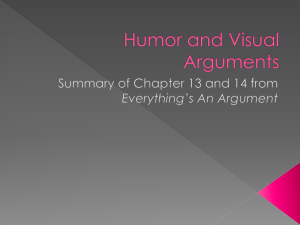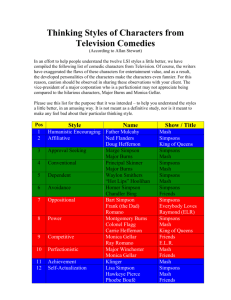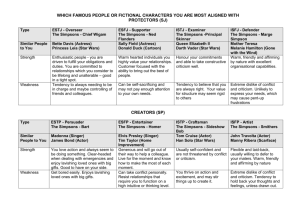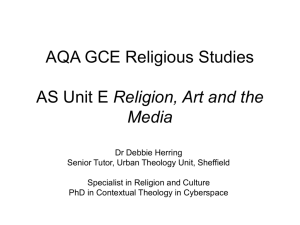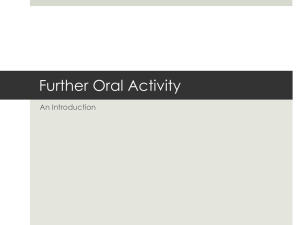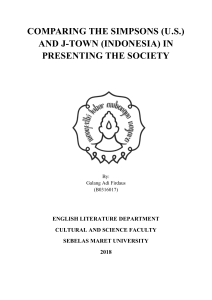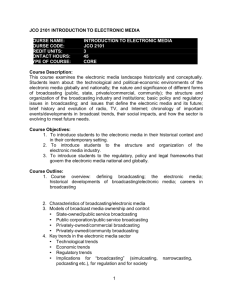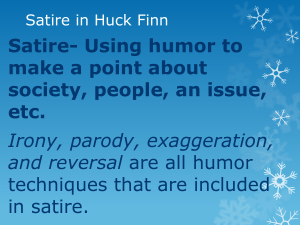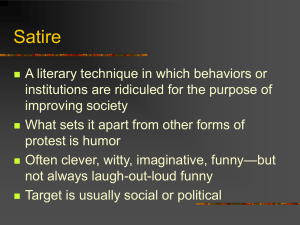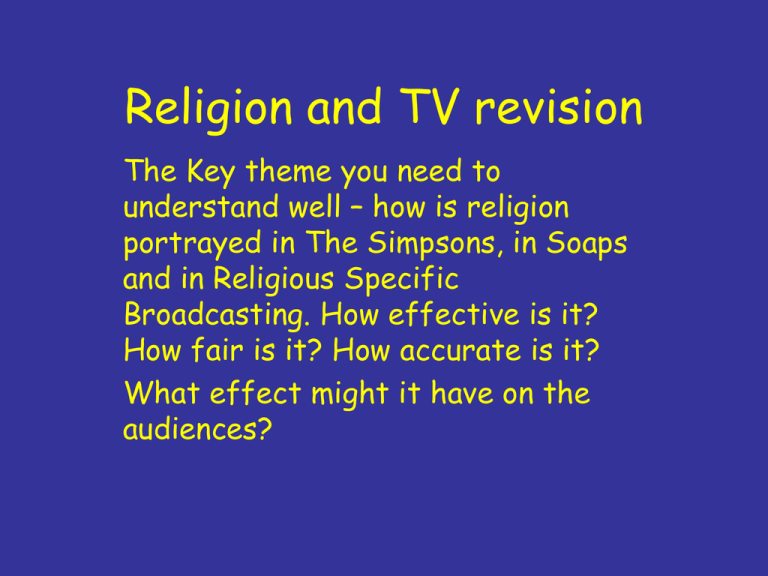
Religion and TV revision
The Key theme you need to
understand well – how is religion
portrayed in The Simpsons, in Soaps
and in Religious Specific
Broadcasting. How effective is it?
How fair is it? How accurate is it?
What effect might it have on the
audiences?
Key texts –
Soaps
Episodes of The Simpsons
Examples of Religious-Specific Broadcasting
(both terrestrial and satellite)
The Gospel According to the Simpsons
The Bible and The Qur’an
House of Lords minutes on religious
broadcasting
Aims of the unit (according to
textbook)
• The way that religious and moral themes are
explored in soap operas
• The way The Simpsons portrays religious
belief and practice
• The purpose of religion-specific broadcasting
• The effect of the portrayal of religion within
these areas is intended to have on the target
audience
• How effective each area is in portraying
religiuos ideas
Soaps
Make sure you can refer to more than one soap (include The Vicar
of Dibley if you wish)
Make sure you can explain as well as describe:
if you’re speaking about homosexuality in East Enders, for example,
make sure you can refer to Islamic teaching; if you refer to
women priests as they are portrayed in The Vicar of Dibley,
then be able to refer to Biblical teachings about male headship
and modern arguments about the ordination of women.
Religious themes can include things such as forgiveness; adultery
etc etc.
Do they stereotype groups?
Are they realistic (remember the definitions of realism)?
Are they a good way to learn about religion and religious values?
(you had a hand-out about the House of Lords on this topic)
Are they replacing organised religion in any sense?
What can’t/don’t they do that traditional religion can do and does?
Who was Mary Whitehouse – she may well be a good source when
you are trying to argue about their worth or lack of?
The Simpsons
Know a number of episodes that explore religious
themes/behaviour/practise.
Know some characters well, especially the key
characters or those who are explicitly religious. That
would include Homer and Marge; Lisa; Rev Lovejoy;
Ned Flanders, Krusty the Clown and Apu.
Be prepared to refer to religious events, practices and
worship - be able to analyse them
Do they treat religious belief in a too light-hearted way;
are they prejudiced in favour of Christianity?
In what sense do they satirise faith? What does the
word mean? Give some examples?
BE ABLE TO QUOTE THE GOSPEL ACCORDING TO
THE SIMPSONS
Religious-specific broadcasting
What are its key features?
Can you identify some examples? Think of
terrestrial and satellite television.
What is the intended impact on the audience of
such programmes?
Should television promote ‘partisan’ (one-sided)
views (what about programmes promoting a
certain religious perspective? Is that ok?)
How/why are such programmes regulated?
Should they be? OFCOM
Integrity – that sense of being a complete person; the
same on the outside as you are on the inside. The
opposite of a stereotype.
A stereotype – a fixed, commonly held notion or image
of a person or group, based on an over-simplification
of some observed or imagined trait of behaviour or
appearance.
A caricature – a likeness of anything so exaggerated or
distorted as to appear
ridiculous.
Satire- Satire is a genre in which human or individual
weaknesses and shortcomings are held up to ridicule
or criticism through comedy. Although satire is
usually meant to be funny, the purpose of satire is not
primarily humour in itself so much as a witty attack
on something of which we are meant to disapprove.
Sometimes satirical comedy is quite savage,
sometimes it can be very gentle.
The watershed – a time (9pm) when material which may
be of adult content – sex; drugs; violence etc, can be
legitimately shown on the grounds that children
should not be watching.
Mary Whitehouse
Women priests.

